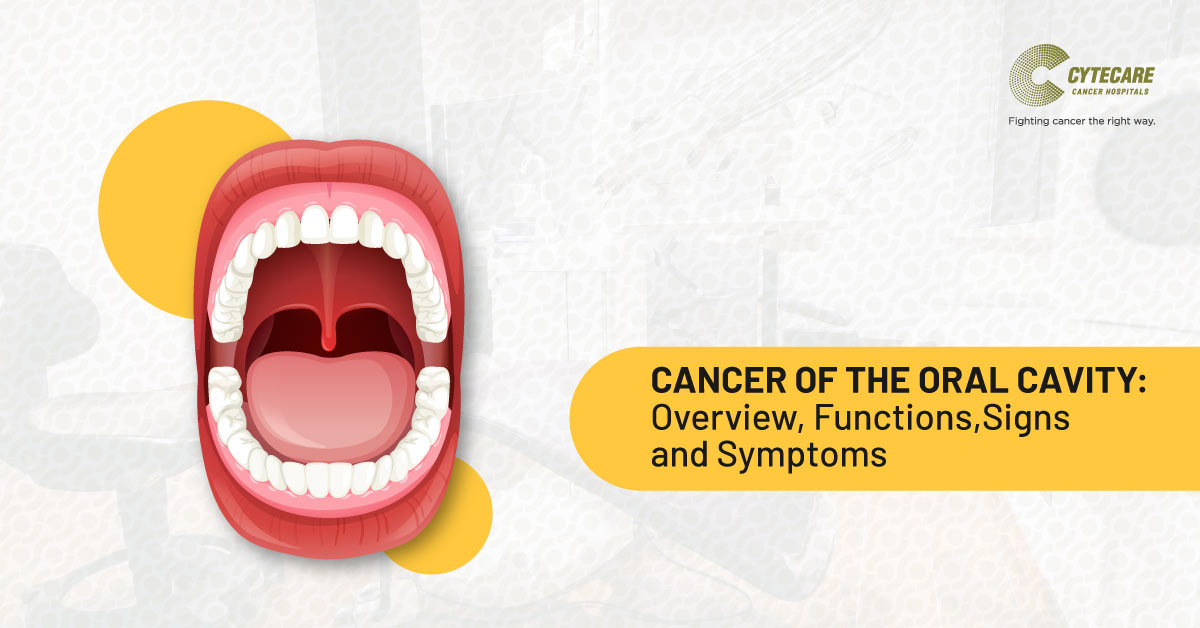Oral Cancer: Overview, Functions, Signs and Symptoms
Author:
Dr. Akshay Kudpaje, Senior Consultant & Director – Head & Neck Oncology
Oral cancers are the most common subset of head and neck cancers we see in India, comprising about 30% of all cancers. It is a preventable lifestyle-related disease caused by the consumption of tobacco in smoked (cigarettes/beedies) or unsmoked (chewing) form. The oral cavity is constantly exposed to these inhaled and consumed carcinogens resulting in abnormal growth inside the mouth. Despite, this site being easily accessible we see 60-80 per cent of patients presenting to cancer hospitals in an advanced stage. As a result, oral cancer control rates are very poor despite surgery and radiation. In addition, the treatment of advanced cancers in this region results in significant morbidity and financial burden to the family. It is important to understand our gateway of food pipe i.e, the oral cavity to notice the abnormal changes early and seek medical opinion to achieve better outcomes and reduce morbidity.
Oral Cavity Anatomy
The oral cavity includes:
- Lips
- The lining of the cheeks (Buccal mucosa)
- Teeth, the gums
- Anterior two-thirds of the tongue
- The floor of the mouth
- The roof of the mouth (hard palate)
- The zone behind the third molars is called the retromolar trigone.

Functions of the oral cavity
The oral cavity, also known as the mouth, is the gateway to the gastrointestinal tract. It is the part of the body which are important for our routine activities like eating, chewing, swallowing, breathing, speaking and socially being accepted. The mouth has numerous salivary glands which are scattered below its lining and the secretions moisten and enable the digestion of the food consumed.
Symptoms of Oral cancer
- A non-healing sore or an ulcer for more than 2 weeks.
- A persistent red/white/ black discolouration.
- Any growth that bleeds easily.
- An induration/indentation is usually on the border of the tongue.
- A sore underneath the denture that does not heal even after the denture adjustment.
- A lump or thickening that develops in the mouth.
- A painless, firm, fixated lump in the neck is persistent for at least two weeks.

How oral cancer develops?
Oral cancer is a disease of extraordinary complexity at all levels. The heap of malignant cells that go haywire arises from the mutation of the genes that control cell behaviour and maintain homeostasis. It takes several mutations to turn the cell cancerous. The mutated or transformed cells refuse to die, grow exponentially with their intrinsic growth factors, and skip the checkpoints of the immune system. The immune cells fail in policing these malignant cells that go unrecognized. The most common reason for these mutations is consumed tobacco in addition it can be caused by viruses or constant environmental exposure to chemicals or radiation.
Oral squamous cell carcinoma is the most common pathology.
Almost all of the cancers in the oral cavity are squamous cell carcinomas. The squamous cells are flat, thin cells that line the mouth and throat. Oral cancer is often preceded by premalignant changes in the mouth in the form of dysplasia, Leukoplakia, submucous fibrosis. Dysplasia can be called mild or severe, based on how abnormal the cells look under the microscope. Dysplastic cells may revert to normal if the etiological agent is eliminated. Knowing the degree of dysplasia can forecast the risk of malignancy in the due course of time. The initial form of squamous cell cancer is called carcinoma in situ. This means that the cancer cells are only in the layer of cells called the epithelium and is different from invasive squamous cell cancer, where the cancer cells have grown past the epithelium, breached the basement membrane, and now have access to lymph nodes and metastasize.
(Always contact your Family doctor, ENT surgeon, Dentist or Head and Neck surgeon right away if there are any immediate concerns)





